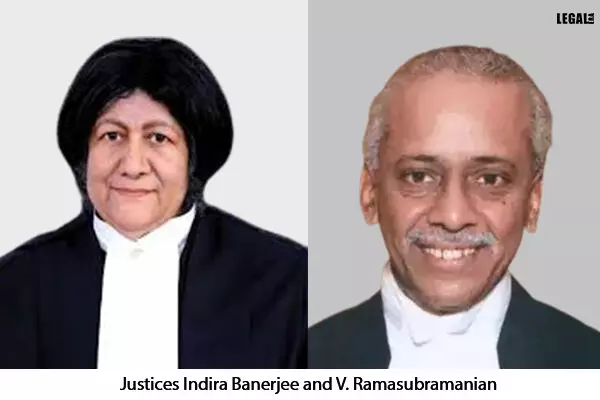- Home
- News
- Articles+
- Aerospace
- Agriculture
- Alternate Dispute Resolution
- Banking and Finance
- Bankruptcy
- Book Review
- Bribery & Corruption
- Commercial Litigation
- Competition Law
- Conference Reports
- Consumer Products
- Contract
- Corporate Governance
- Corporate Law
- Covid-19
- Cryptocurrency
- Cybersecurity
- Data Protection
- Defence
- Digital Economy
- E-commerce
- Employment Law
- Energy and Natural Resources
- Entertainment and Sports Law
- Environmental Law
- FDI
- Food and Beverage
- Health Care
- IBC Diaries
- Insurance Law
- Intellectual Property
- International Law
- Know the Law
- Labour Laws
- Litigation
- Litigation Funding
- Manufacturing
- Mergers & Acquisitions
- NFTs
- Privacy
- Private Equity
- Project Finance
- Real Estate
- Risk and Compliance
- Technology Media and Telecom
- Tributes
- Zoom In
- Take On Board
- In Focus
- Law & Policy and Regulation
- IP & Tech Era
- Viewpoint
- Arbitration & Mediation
- Tax
- Student Corner
- AI
- ESG
- Gaming
- Inclusion & Diversity
- Law Firms
- In-House
- Rankings
- E-Magazine
- Legal Era TV
- Events
- News
- Articles
- Aerospace
- Agriculture
- Alternate Dispute Resolution
- Banking and Finance
- Bankruptcy
- Book Review
- Bribery & Corruption
- Commercial Litigation
- Competition Law
- Conference Reports
- Consumer Products
- Contract
- Corporate Governance
- Corporate Law
- Covid-19
- Cryptocurrency
- Cybersecurity
- Data Protection
- Defence
- Digital Economy
- E-commerce
- Employment Law
- Energy and Natural Resources
- Entertainment and Sports Law
- Environmental Law
- FDI
- Food and Beverage
- Health Care
- IBC Diaries
- Insurance Law
- Intellectual Property
- International Law
- Know the Law
- Labour Laws
- Litigation
- Litigation Funding
- Manufacturing
- Mergers & Acquisitions
- NFTs
- Privacy
- Private Equity
- Project Finance
- Real Estate
- Risk and Compliance
- Technology Media and Telecom
- Tributes
- Zoom In
- Take On Board
- In Focus
- Law & Policy and Regulation
- IP & Tech Era
- Viewpoint
- Arbitration & Mediation
- Tax
- Student Corner
- AI
- ESG
- Gaming
- Inclusion & Diversity
- Law Firms
- In-House
- Rankings
- E-Magazine
- Legal Era TV
- Events
Financial Criteria for compassionate appointment given in a compassionate Appointment Scheme cannot be ignored: Supreme Court

Financial Criteria for compassionate appointment given in a compassionate Appointment Scheme cannot be ignored: Supreme Court
The Supreme Court recently held that the financial criteria for compassionate appointment given in a Compassionate Appointment Scheme cannot be ignored.
"Rules which provide for a financial criteria for appointment on Compassionate ground are valid and lawful rules which have to be construed strictly, as otherwise the quota reserved for compassionate appointment would be filled up excluding others who might be in greater and/or far more acute financial distress", the bench comprising Justices Indira Banerjee and V. Ramasubramanian observed.
The present issue arose when the Bombay High Court allowed the writ petition filed by an applicant for compassionate appointment and directed the Central Bank of India to consider his case for compassionate appointment as per his seniority in filing the present application. The applicant's earlier application was rejected on the ground that the family of the retired employee was not indigent as the family had an estimated monthly income of Rs.36,773/-, which was more than 60% of the last drawn gross salary of Rs.55,978/- of the retired employee. It was a condition of compassionate appointment under the Compassionate Appointment Scheme that the total income of the family should not exceed 60% of the last drawn gross salary of the retired employee.
Aggrieved by the decision a appeal was filed. The Apex Court bench observed that the High Court patently erred in arriving at the finding that whether the family was indigent or not could not be a ground for refusing compassionate appointment to a candidate who was otherwise eligible for appointment under the Compassionate Appointment Scheme.
The court observed that the claim for compassionate appointment is traceable only to the Scheme framed by the employer for such employment, and there is no right whatsoever outside such scheme and there could be no automatic appointment merely on application.
Allowing the appeal, the bench observed:
"It is well settled that compassionate appointment is an exception to the rule of equality, which enables the dependent family members of a medically incapacitated employee who has no option, but to retire, or a deceased employee, to tide over the immediate crisis caused by the incapacitation or death of the breadwinner. Compassionate Appointment excludes equally or more meritorious candidates, much in need of a job, from the zone of consideration. Consideration for compassionate appointment must, therefore, be strictly in accordance with the prevalent rules for compassionate appointment applicable to the deceased/prematurely retired employee. ...In this case, there is a financial criteria of eligibility for compassionate appointment under the Compassionate Appointment Scheme. Rules which provide for a financial criteria for appointment on Compassionate ground are valid and lawful rules which have to be construed strictly, as otherwise the quota reserved for compassionate appointment would be filled up excluding others who might be in greater and/or far more acute financial distress."



